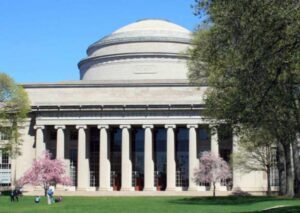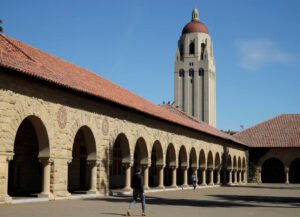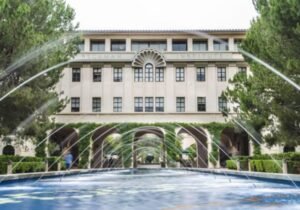The United States boasts a diverse and renowned higher education system, home to some of the world’s best universities. Choosing the right university is a crucial decision for prospective students, as it can significantly impact their academic and professional journey. In this article, we’ll delve into some of the top universities in the U.S., renowned for their academic excellence, research contributions, and vibrant campus life.
- Harvard University: Harvard consistently ranks among the top universities globally. Known for its prestigious reputation, Harvard offers a broad range of programs across various disciplines. The university’s commitment to research and innovation has positioned it as a leader in academia.
- Massachusetts Institute of Technology (MIT): MIT is renowned for its focus on science, technology, engineering, and mathematics (STEM) fields. The institution’s cutting-edge research and emphasis on practical applications make it a hub for aspiring scientists and engineers from around the world.
- Stanford University: Located in the heart of Silicon Valley, Stanford University is synonymous with innovation and entrepreneurship. It excels in both humanities and sciences, fostering an environment that encourages interdisciplinary collaboration.
- California Institute of Technology (Caltech): Caltech is a small yet influential institution with a strong emphasis on the sciences and engineering. Its faculty and alumni have made significant contributions to various scientific fields, earning Caltech a place among the world’s top universities.
- University of Chicago: Known for its rigorous academic programs and intellectual atmosphere, the University of Chicago has a distinguished faculty and a commitment to critical thinking. The university’s strong emphasis on research contributes to its global academic standing.
The United States offers a wealth of educational opportunities, and the universities mentioned above represent just a fraction of the diverse options available. When choosing a university, prospective students should consider factors such as academic programs, campus culture, and research opportunities to find the institution that best aligns with their goals and aspirations.
1X**Harvard University: A Detailed Overview**

Harvard University, established in 1636, is a world-renowned institution located in Cambridge, Massachusetts. Widely regarded as one of the oldest and most prestigious universities globally, Harvard has consistently maintained its position as a leader in academia, research, and intellectual innovation.
Campus: Harvard’s sprawling campus spans across 5,076 acres and is divided into several iconic residential colleges, each with its unique character and history. The historic Harvard Yard, at the heart of the campus, is surrounded by impressive red-brick buildings, including Massachusetts Hall, the oldest standing academic building in the United States.
Academic Excellence: Harvard is synonymous with academic excellence. The university offers a vast array of undergraduate and graduate programs across various disciplines. From the humanities to the sciences, Harvard’s faculty comprises some of the brightest minds in their respective fields. The emphasis on critical thinking, interdisciplinary studies, and a commitment to intellectual exploration sets Harvard apart in the academic landscape.
Research Opportunities: Harvard is a powerhouse of research and innovation. The university is home to numerous research centers and institutes dedicated to advancing knowledge and addressing global challenges. Students have unparalleled access to cutting-edge laboratories, libraries, and resources, fostering an environment conducive to groundbreaking discoveries.
Faculty: The distinguished faculty at Harvard includes Nobel laureates, Pulitzer Prize winners, and leaders in various fields. The commitment of professors to both research and teaching ensures that students receive a world-class education enriched by the latest advancements in their respective disciplines.
Campus Life: Harvard offers a vibrant and diverse campus life. Students engage in a myriad of extracurricular activities, including student organizations, arts, sports, and community service. The rich cultural and social tapestry encourages students to explore their interests beyond the classroom.
Innovation and Entrepreneurship: Situated in the heart of the innovation hub of Cambridge and adjacent to Boston, Harvard fosters a culture of entrepreneurship. The university actively supports students in translating their ideas into real-world solutions, and its alumni include numerous successful entrepreneurs and industry leaders.
Global Perspective: Harvard’s commitment to a global perspective is evident in its diverse student body and extensive international programs. The university encourages students to engage with global issues, fostering an understanding of different cultures and perspectives.
Admissions and Selectivity: Harvard’s admissions process is highly competitive, reflecting the university’s commitment to attracting the brightest and most talented students worldwide. The selection process considers not only academic achievements but also extracurricular activities, leadership qualities, and a commitment to community service.
Harvard University stands as an academic beacon, representing centuries of intellectual tradition and a commitment to excellence. Its influence extends beyond the ivy-covered walls, shaping global leaders, thinkers, and innovators. A journey at Harvard is not merely an education; it is an immersion into a community that values intellectual curiosity, collaboration, and the pursuit of knowledge.
2X**Massachusetts Institute of Technology (MIT): A Comprehensive Overview**

Established in 1861, the Massachusetts Institute of Technology, commonly known as MIT, stands as a beacon of innovation and academic excellence in the heart of Cambridge, Massachusetts. Revered globally for its cutting-edge research, pioneering faculty, and a commitment to pushing the boundaries of knowledge, MIT has consistently ranked among the world’s top universities.
Campus and Facilities: MIT’s campus spans 168 acres along the Charles River, comprising state-of-the-art facilities, iconic architecture, and green spaces. The campus is divided into five schools: Architecture and Planning, Engineering, Humanities, Arts, and Social Sciences, Management, and Science, providing a multidisciplinary environment for students.
Academic Programs: MIT offers a comprehensive range of undergraduate and graduate programs across various disciplines, with a strong emphasis on science, technology, engineering, and mathematics (STEM). The university’s commitment to interdisciplinary collaboration encourages students to explore the intersections of different fields, fostering a holistic approach to problem-solving.
Research and Innovation: MIT is renowned for its groundbreaking research and technological advancements. The university is home to numerous research centers and laboratories where faculty and students collaborate on projects ranging from artificial intelligence and robotics to sustainable energy and biomedical engineering. MIT’s emphasis on practical applications of research has led to real-world solutions and transformative technologies.
World-Class Faculty: The faculty at MIT is composed of distinguished scholars, scientists, and industry experts who have made significant contributions to their respective fields. With a focus on both teaching and research, MIT professors inspire students to think critically and pursue excellence in their academic endeavors.
Entrepreneurial Culture: MIT has cultivated an entrepreneurial culture that has given rise to numerous successful startups and innovations. The university actively supports student entrepreneurship through programs, competitions, and the Martin Trust Center for MIT Entrepreneurship, empowering students to turn their ideas into impactful ventures.
Campus Life: MIT’s campus life is dynamic and diverse, offering a plethora of extracurricular activities, clubs, and organizations. Students are actively involved in everything from robotics competitions and hackathons to artistic pursuits and community service. The vibrant MIT community provides a stimulating environment for personal and intellectual growth.
Admissions and Selectivity: MIT’s admissions process is highly competitive, reflecting its commitment to attracting the brightest minds. The institute looks beyond academic achievements, considering factors such as leadership qualities, passion for innovation, and a commitment to making a positive impact.
Global Impact: MIT’s influence extends globally through collaborations, research partnerships, and alumni networks. The institute actively engages with global challenges and seeks solutions that transcend borders, emphasizing the importance of a worldwide perspective.
The Massachusetts Institute of Technology, with its unwavering dedication to excellence, research, and innovation, continues to shape the future of technology and contribute to the advancement of knowledge. For students seeking a transformative educational experience at the forefront of technological and scientific progress, MIT stands as an unparalleled institution.
3X**Stanford University: A Distinctive Academic Hub**

Nestled in the heart of Silicon Valley in California, Stanford University has established itself as a preeminent institution globally, renowned for its commitment to academic excellence, innovation, and a vibrant campus community. Founded in 1885, Stanford has evolved into a beacon of higher education that embodies the spirit of entrepreneurship and intellectual curiosity.
Campus and Setting: Stanford’s sprawling 8,180-acre campus is a picturesque blend of Spanish-style architecture, cutting-edge facilities, and verdant landscapes. Surrounded by the innovation hub of Silicon Valley, the university’s location provides students with unique opportunities for collaboration, internships, and engagement with industry leaders.
Academic Prowess: Stanford offers a diverse array of undergraduate and graduate programs across seven schools, including Humanities and Sciences, Engineering, Business, Law, Medicine, and Earth, Energy & Environmental Sciences. The university’s commitment to interdisciplinary studies encourages students to explore a broad range of subjects and fosters a holistic approach to education.
Research and Innovation Hub: As a research powerhouse, Stanford is at the forefront of transformative discoveries and technological advancements. The university’s research centers and institutes cover a wide spectrum of fields, from artificial intelligence and bioengineering to sustainable energy and social sciences. Stanford’s collaborative and entrepreneurial spirit has led to the development of numerous groundbreaking technologies and initiatives.
World-Class Faculty: Stanford’s faculty comprises distinguished scholars, Nobel laureates, and industry leaders who actively engage in cutting-edge research and contribute to the university’s academic prominence. The emphasis on mentorship and close interaction between faculty and students enhances the overall learning experience.
Entrepreneurial Culture: Stanford’s proximity to Silicon Valley has cultivated an entrepreneurial culture that permeates the campus. The university actively supports student innovation through initiatives like the Stanford Technology Ventures Program and the StartX accelerator, empowering students to translate their ideas into impactful ventures.
Campus Life: Stanford’s campus life is vibrant and diverse, offering a myriad of extracurricular activities, cultural events, and student organizations. From performing arts and athletics to community service and leadership opportunities, students find avenues to explore their interests and build lifelong connections.
Admissions and Selectivity: Stanford’s admissions process is highly competitive, attracting some of the brightest minds globally. The university looks beyond academic achievements, considering qualities such as leadership, passion, and a commitment to making a positive impact on the world.
Global Engagement: Stanford actively fosters a global perspective through international programs, collaborations, and a diverse student body. The university’s commitment to addressing global challenges underscores its role as a leader in shaping solutions with a worldwide impact.
Stanford University, with its rich history, commitment to innovation, and a nurturing environment, continues to be a powerhouse in higher education. For those seeking a transformative educational journey that combines academic rigor with a spirit of entrepreneurship, Stanford stands as a beacon of inspiration and opportunity.
4X**California Institute of Technology (Caltech): A Hub of Scientific Excellence**

Introduction: Nestled in Pasadena, California, the California Institute of Technology, or Caltech, stands as an iconic institution renowned for its unwavering commitment to scientific and technological advancement. Established in 1891, Caltech has carved a niche for itself as a world-class research university with a focus on pushing the boundaries of knowledge.
Campus and Facilities: Caltech’s compact 124-acre campus exudes an academic atmosphere, featuring cutting-edge laboratories, state-of-the-art research facilities, and iconic architecture. The proximity to major research centers and industries in Southern California enhances the university’s collaborative and innovative environment.
Academic Prowess: Caltech is celebrated for its emphasis on science and engineering. The university offers a select range of undergraduate and graduate programs, maintaining a low student-to-faculty ratio to foster close interaction and mentorship. The rigorous academic programs ensure that students are well-prepared for careers at the forefront of scientific exploration.
Research and Innovation: Caltech’s commitment to groundbreaking research is evident in its numerous research centers and institutes. From astrophysics and quantum computing to biology and environmental science, the university’s faculty and students actively contribute to advancements that have a global impact. Caltech has played a pivotal role in major scientific discoveries, including the detection of gravitational waves.
Faculty Excellence: Caltech’s faculty comprises Nobel laureates, National Medal of Science recipients, and pioneers in their respective fields. The collaborative nature of research at Caltech allows students to work closely with leading experts, providing a unique and enriching educational experience.
Entrepreneurial Spirit: While rooted in academia, Caltech also fosters an entrepreneurial spirit. The university actively supports technology transfer and the commercialization of research through its Office of Technology Transfer. This approach has led to the creation of numerous startups and the development of technologies that impact various industries.
Campus Life: Caltech’s intimate campus life is characterized by a close-knit community of scholars. Despite its focus on rigorous academics, the university offers a range of extracurricular activities, including clubs, arts, and sports, providing students with a well-rounded experience.
Admissions and Selectivity: Caltech’s admissions process is highly selective, attracting students with exceptional academic achievements, a passion for research, and a dedication to scientific exploration. The small student body ensures a personalized and collaborative learning environment.
Global Impact: Caltech’s contributions to scientific research and innovation have a global reach. The university’s alumni, including numerous Nobel laureates and leaders in academia and industry, continue to make significant contributions to the advancement of science and technology worldwide.
Conclusion: California Institute of Technology, with its distinguished faculty, emphasis on research, and entrepreneurial spirit, remains at the forefront of scientific discovery. For those passionate about delving into the depths of scientific exploration, Caltech stands as a beacon of academic excellence and a hub for pushing the boundaries of human knowledge.
5X**University of Chicago: Nurturing Intellectual Inquiry and Academic Rigor**

Founded in 1890, the University of Chicago stands as an intellectual powerhouse renowned for its commitment to academic excellence, critical thinking, and research innovation. Located in the historic Hyde Park neighborhood of Chicago, this prestigious institution has played a pivotal role in shaping the landscape of higher education.
Campus and Architecture: The University of Chicago’s campus is a blend of historic and modern architecture, showcasing the iconic Gothic and Collegiate Gothic styles. The expansive 217-acre campus provides a stimulating environment for intellectual exploration, featuring state-of-the-art facilities, libraries, and research centers.
Academic Distinction: The university is celebrated for its rigorous academic programs that span a diverse range of disciplines, including the humanities, social sciences, physical sciences, and professional schools. The Core Curriculum, a hallmark of a Chicago education, emphasizes interdisciplinary studies, critical thinking, and intellectual inquiry.
Research and Innovation: The University of Chicago is at the forefront of research and innovation. Its commitment to groundbreaking discoveries is reflected in the myriad of research centers and institutes dedicated to advancing knowledge across various fields. Faculty and students engage in cutting-edge research that contributes to the global academic discourse.
Nobel Laureates and Esteemed Faculty: The University of Chicago boasts an impressive faculty, including numerous Nobel laureates, Pulitzer Prize winners, and leaders in their respective fields. The university’s commitment to fostering an environment of intellectual curiosity attracts top-tier scholars who actively engage with students in the pursuit of knowledge.
Unique Approach to Learning: The university’s distinctive approach to learning encourages students to think critically, question assumptions, and engage in lively academic discourse. The Socratic Method, characterized by rigorous dialogue and debate, is a cornerstone of the university’s pedagogical philosophy, fostering an atmosphere of intellectual rigor.
Urban Campus Life: Situated in one of America’s most vibrant cities, the University of Chicago offers students a unique blend of campus and urban life. Beyond academics, students have access to cultural events, artistic performances, and a rich tapestry of activities in the diverse city of Chicago.
Influence on Social Sciences and Economics: The University of Chicago has significantly influenced the fields of economics and social sciences. The Chicago School of Economics, known for its emphasis on free-market principles, and the contributions to sociology and political science have left an indelible mark on academic scholarship.
Admissions and Selectivity: The university’s admissions process is highly competitive, reflecting its commitment to attracting intellectually curious and ambitious students. The diverse student body contributes to a vibrant and dynamic academic community.
Global Impact and Alumni Success: The University of Chicago’s impact extends globally through its alumni network, which includes Nobel laureates, MacArthur Fellows, and leaders in various fields. Graduates of the university continue to shape the world through their contributions to academia, business, public service, and the arts.
The University of Chicago’s legacy of academic excellence, commitment to intellectual inquiry, and influential research make it a beacon for those seeking a transformative educational experience. With a focus on critical thinking and interdisciplinary studies, the university continues to be a driving force in shaping the next generation of leaders and scholars.










